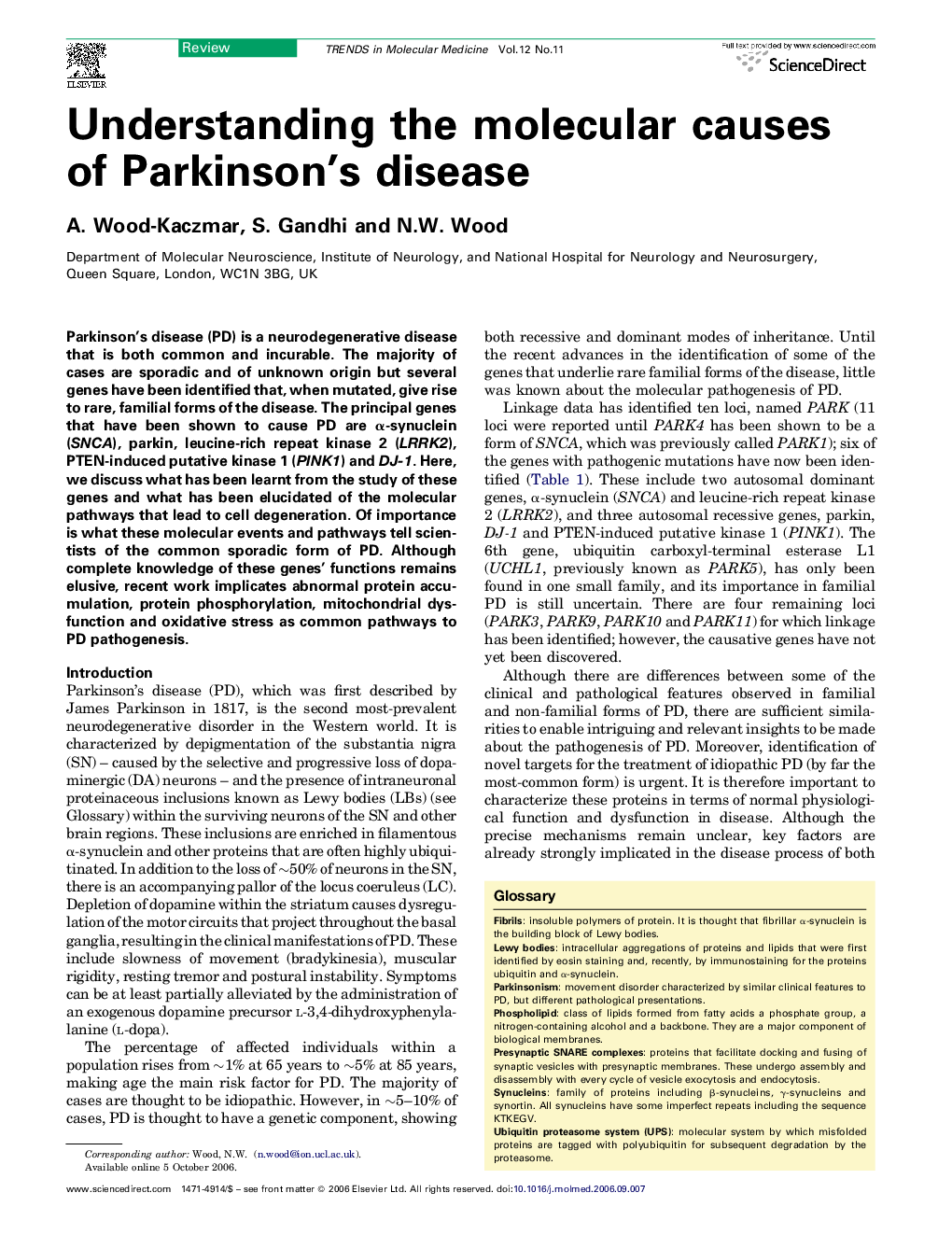| Article ID | Journal | Published Year | Pages | File Type |
|---|---|---|---|---|
| 2839357 | Trends in Molecular Medicine | 2006 | 8 Pages |
Parkinson's disease (PD) is a neurodegenerative disease that is both common and incurable. The majority of cases are sporadic and of unknown origin but several genes have been identified that, when mutated, give rise to rare, familial forms of the disease. The principal genes that have been shown to cause PD are α-synuclein (SNCA), parkin, leucine-rich repeat kinase 2 (LRRK2), PTEN-induced putative kinase 1 (PINK1) and DJ-1. Here, we discuss what has been learnt from the study of these genes and what has been elucidated of the molecular pathways that lead to cell degeneration. Of importance is what these molecular events and pathways tell scientists of the common sporadic form of PD. Although complete knowledge of these genes’ functions remains elusive, recent work implicates abnormal protein accumulation, protein phosphorylation, mitochondrial dysfunction and oxidative stress as common pathways to PD pathogenesis.
